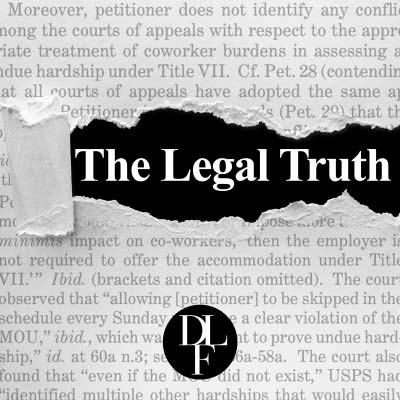 Workplace accidents can happen in any industry, leaving injured workers facing medical bills, lost wages, and an uncertain future. In North Charleston and throughout South Carolina, most employers must carry workers' compensation insurance to provide benefits to employees hurt on the job.
Workplace accidents can happen in any industry, leaving injured workers facing medical bills, lost wages, and an uncertain future. In North Charleston and throughout South Carolina, most employers must carry workers' compensation insurance to provide benefits to employees hurt on the job.
For injured workers, consulting with an experienced North Charleston workers' compensation lawyer can provide valuable support for their claim. The team of workers’ compensation lawyers at Derrick Law Firm has extensive experience helping injured workers. While past results do not guarantee future outcomes, we encourage injured workers to contact us to get their questions answered.
The South Carolina Workers' Compensation System
Workers' compensation is a state-regulated insurance program that provides financial protection and medical care to employees who experience work-related injuries, illnesses, or disabilities. In South Carolina, businesses with four or more employees are typically required to carry workers' compensation insurance.
The primary goals of the workers' comp system are to:
- Cover medical expenses necessary to diagnose and treat work-related injuries or illnesses
- Replace a portion of an employee's lost wages while they're unable to work
- Provide compensation for permanent impairments or disabilities resulting from workplace accidents
- Offer death benefits to the dependents of workers killed in on-the-job accidents
Importantly, workers' compensation is a no-fault system, meaning injured workers can receive benefits regardless of who caused the accident - even if it was their error. In exchange for this protection, employees are generally prohibited from suing their employer for additional damages.
Filing a Workers' Compensation Claim: Reporting the Injury
The first step in any workers' compensation claim is reporting the injury or illness to the employer. South Carolina law requires employees to provide notice within 90 days of the accident or discovery of the condition.
Injured workers should report the accident in writing when possible, as this creates a record of when the notice was provided. They should also keep a copy of the written report for their personal files.
Once notified, the employer must file a First Report of Injury or Illness (FROI) form with the South Carolina Workers' Compensation Commission (SCWCC) within ten days. The employer or their insurance carrier may also schedule a medical evaluation for the injured worker during this time.
Getting Medical Treatment
In most cases, the employer can choose the doctor to treat an injured worker under their workers' compensation insurance.
However, injured workers can request a second opinion or a change of physician by filing a written request with the SCWCC. Valid reasons for a change might include:
- The authorized doctor is too far away or unavailable
- The doctor is not providing adequate treatment
- The employee is not comfortable with the doctor's care
During treatment, injured workers must follow all their doctor's recommendations, including work restrictions, physical therapy regimens, and prescription medications. Failure to comply with medical advice can jeopardize their right to ongoing benefits.
Workplace Injuries Covered by Workers' Comp
Workers' compensation covers injuries and illnesses that arise out of and in the course of employment. This can include accidents that occur:
- On the employer's premises, including parking lots and outdoor spaces
- Off-site while performing work-related duties, such as making deliveries or attending a conference
- During work-sponsored events, like holiday parties or team-building activities
Some common workplace accidents in South Carolina include:
- Slip, trip, and fall incidents due to wet floors, uneven surfaces, or cluttered walkways
- Being struck by falling objects, such as tools or merchandise falling from shelves
- Motor vehicle crashes while operating a company vehicle or traveling for work purposes
- Accidents involving dangerous machinery, defective equipment, or improperly maintained tools
- Repetitive motion injuries caused by performing the same tasks over an extended period
- Exposure to toxic substances, infectious diseases, or other harmful materials
These accidents can lead to a wide variety of work-related injuries and illnesses, such as:
- Broken bones and fractures
- Soft tissue damage, including sprains, strains, and tears
- Neck and back injuries, such as whiplash or herniated discs
- Head injuries, concussions, and traumatic brain injuries (TBIs)
- Spinal cord injuries and paralysis
- Crush injuries and amputations
- Severe burns and disfigurement
- Hearing or vision loss
- Respiratory diseases like COPD or occupational asthma
- Cancers caused by exposure to toxic chemicals or radiation
Injured workers may also experience secondary complications from their injuries, such as chronic pain, anxiety, depression, or post-traumatic stress disorder (PTSD). These conditions can also be covered under workers' comp if they stem from the original work-related injury.
High-Risk Industries in South Carolina
While workplace accidents can happen in any industry, some sectors tend to have higher worker injury and fatality rates. According to the South Carolina Department of Labor, Licensing and Regulation, the most dangerous industries in the state include:
- Construction, especially jobs involving heights, heavy equipment, or excavations
- Manufacturing, particularly positions working with machinery or hazardous materials
- Transportation and warehousing, including truck drivers, delivery workers, and forklift operators
- Agriculture, forestry, fishing, and hunting, which often involve physically demanding labor and dangerous tools
- Health care and social assistance, where workers face risks like heavy lifting, needle sticks, or patient violence
However, even office workers or employees in historically "safe" occupations can suffer serious injuries on the job.
Available Workers' Comp Benefits
Injured workers in South Carolina are entitled to several categories of benefits under the workers' compensation system, including:
- Medical benefits. The employer's insurance must pay for all reasonable and necessary medical treatment related to the work injury, including doctor visits, surgeries, hospitalizations, prescriptions, and medical devices. Injured workers can also receive mileage reimbursement for travel to appointments more than five miles from their home.
- Temporary total disability (TTD). Employees who are completely unable to work due to their injury can receive weekly TTD payments equal to two-thirds of their average pre-injury wage. These benefits continue until the worker reaches maximum medical improvement (MMI) or returns to work.
- Temporary partial disability (TPD). If an injured worker can return to light-duty work but earns less than their regular wages, they can receive TPD payments to help make up the difference. TPD benefits are calculated at two-thirds of the difference between the worker's pre-injury and post-injury wages.
- Permanent partial disability (PPD). Once an injured worker reaches MMI, their doctor will evaluate them for any permanent impairments, such as the loss of a limb or reduced range of motion. The worker can then receive PPD payments based on the severity of their disability and its impact on their future earning capacity.
- Permanent total disability (PTD). If a work injury is so severe that the employee can never return to suitable employment, they may be entitled to PTD benefits at the TTD rate. In South Carolina, injuries that automatically qualify for PTD include the loss of both hands, arms, feet, legs, or eyes, as well as certain combinations of these losses.
- Death benefits. When an employee dies due to a work-related injury or illness, their surviving dependents can receive weekly death benefits equal to two-thirds of the worker's average weekly wage. They may also be able to receive compensation for funeral and burial costs.
In addition to these monetary benefits, injured workers may be eligible for vocational rehabilitation services to help them return to gainful employment. This can include job training, education, and placement assistance.
Protecting the Rights of Injured Workers
Unfortunately, employers and insurers may prioritize cost management over injured workers' needs. To level the playing field and protect their rights, employees hurt on the job should consider the following:
- Reporting the injury to their supervisor immediately and follow up with a written notice
- Taking photos of the accident scene, their injuries, and any relevant equipment or hazards
- Gathering contact information from any coworkers or others who witnessed the accident
- Attending all medical appointments and carefully follow their doctor's treatment plan
- Requesting copies of all medical records and bills related to the injury
- Declining to give a recorded statement to the insurance company without consulting an attorney
- Avoiding posting any information about the accident or their activities on social media
- Resisting pressure from their employer to return to work before reaching MMI
- Contacting a knowledgeable North Charleston workers' compensation lawyer to discuss their rights and options
When to Hire a North Charleston Workers' Compensation Lawyer
Although it's possible for injured workers to handle straightforward claims independently, there are situations where it's beneficial to hire an experienced North Charleston workers' compensation lawyer. An attorney may help if:
- The employer denies the accident was work-related or refuses to report it to their insurer
- The insurance company denies the claim or stops paying benefits
- The settlement offer doesn't cover all of the injured worker's losses
- The injuries are catastrophic, complex, or likely to result in permanent disability
- There's a dispute about the injured worker's average weekly wage or disability rating
- The employer retaliates against the injured worker for filing a claim
- The injured worker has a preexisting condition that complicates their case
- A third party's negligence contributed to the accident
Once a North Charleston workers’ compensation lawyer takes a case, they can handle all communications with the insurance company, gather evidence to strengthen the claim, ensure paperwork is filed correctly and on time, negotiate a fair settlement, and represent the injured worker during hearings or appeals. This allows injured workers to focus on their physical recovery while their legal interests are being protected.



